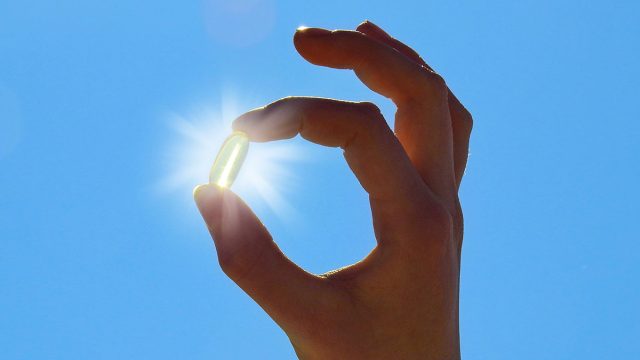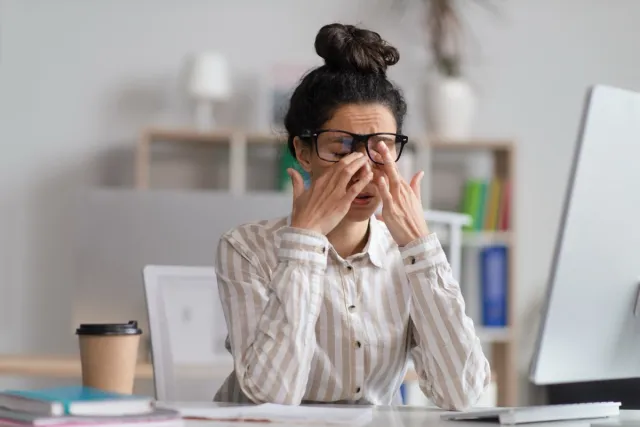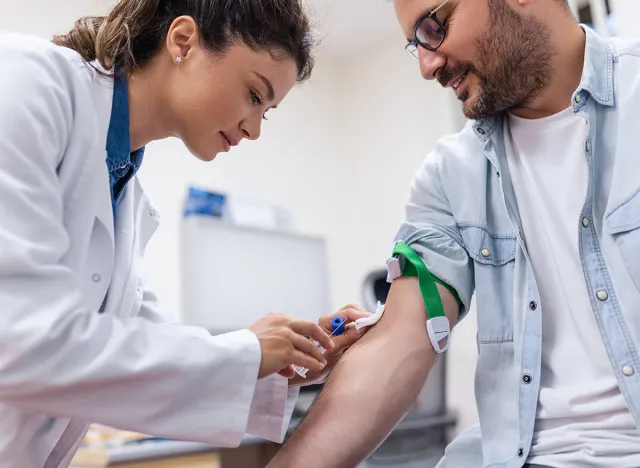5 Signs Your Body May Be Lacking Vitamin D, Say Experts

The most popular supplement in America isn't Vitamin C or a multivitamin—it's Vitamin D. Vitamin D regulates your calcium levels, vital for healthy bones, and facilitates normal immune system function. So how do you know if you need it too? "Lack of vitamin D is not quite as obvious in adults," says the Cleveland Clinic. "Signs and symptoms might include" the following.
You Might Feel Fatigue

"Vitamin D deficiency is frequent and has been associated with fatigue and other unspecific symptoms including headache, musculoskeletal pain and weakness, depression, and impaired cognitive performance," says one study published in Medicine. "Vitamin D treatment significantly improved fatigue in otherwise healthy persons with vitamin D deficiency."
You Might Feel Bone Pain

"Vitamin D status influences musculoskeletal health," says one study published in Musculoskeletal Medicine. "Low vitamin D levels may lead to clinical manifestations, including bone pain, muscle weakness, falls, low bone mass, and fractures, with subsequent diagnoses of osteomalacia, osteoporosis, and myopathy."
RELATED: Studies Show These are Proven Ways to Lose Visceral Fat
You Might Feel Muscle Weakness, Muscle Aches, or Muscle Cramps

"Vitamin D is increasingly recognized to play an important role in normal muscle function," say the authors of one study published in Bone Reports. "Low vitamin D status is associated with an increased risk of falls and proximal weakness. Since vitamin D deficiency is very common, and the signs are non-specific, it is important to maintain a high index of suspicion of vitamin D deficiency in patients with muscle pain and weakness."
You Might Have Mood Changes, Like Depression

"Depression in its own right is a disabling condition impairing all aspects of human function," say the authors of a study in Issues in Mental Health Nursing. "In persons with a chronic medical disease, depression often makes the management of chronic illness more difficult. Recently, vitamin D has been reported in the scientific and lay press as an important factor that may have significant health benefits in the prevention and treatment of many chronic illnesses. Most individuals in this country have insufficient levels of vitamin D. This is also true for persons with depression as well as other mental disorders."
If You're a Child, You Could Get Rickets

"Severe lack of vitamin D causes rickets, which shows up in children as incorrect growth patterns, weakness in muscles, pain in bones and deformities in joints," says the Cleveland Clinic. "This is very rare. However, children who are deficient in vitamin D can also have muscle weakness or sore and painful muscles."
RELATED: 25 Ways to Not Look Older After 50, Say Experts
What to Do if You Fear You Have a Vitamin D Deficiency

"Your doctor can order a blood test to measure your levels of vitamin D," says the Cleveland Clinic. "There are two types of tests that might be ordered, but the most common is the 25-hydroxyvitamin D, known as 25(OH)D for short. For the blood test, a technician will use a needle to take blood from a vein. You do not need to fast or otherwise prepare for this type of test." And if you enjoyed this article, take advantage of these 15 Quick Ways to Lose Body Fat Percentage in a Week.




